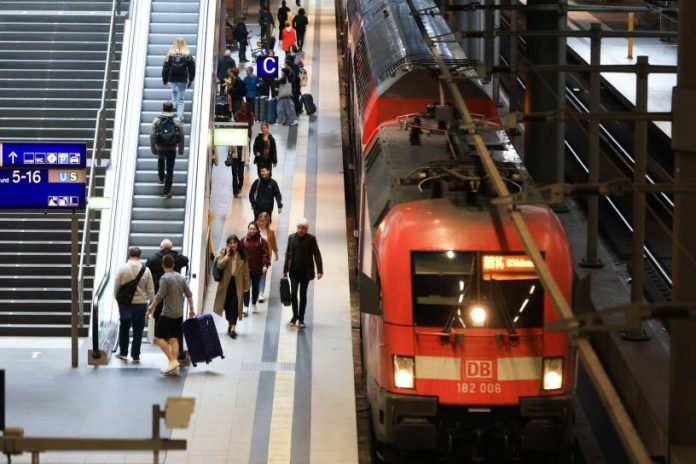German Chancellor Friedrich Merz, together with more than 60 of the country’s largest companies, has launched a large-scale investment project worth at least €100 billion aimed at overcoming the economic crisis in Europe’s largest economy.
The project, called “Made in Germany — Together We Are Strong,” is being coordinated by leading top managers, including the heads of Deutsche Bank AG and Siemens AG. As part of this initiative, participants have pledged to invest a “three-digit billion euro amount” in the German economy by 2028, out of a total investment of €631 billion, according to a statement sent by email on Monday.
The investments include both planned and new capital investments, funding for research and development, and the participation of international investors. The initiative is intended to send a “strong positive signal” amid the massive capital outflow of recent years, which has amounted to hundreds of billions of euros.
“We are capable of overcoming the country’s economic difficulties on our own,” Deutsche Bank CEO Christian Sewing said, emphasising that the commitments announced are “just the beginning.”
According to Siemens CEO Roland Busch, the project symbolises a “new start” in co-operation between the state and business, with less bureaucracy and more innovation.
“Germany has global companies, a strong industrial sector and outstanding minds. We have everything we need to become a leader in digital technology and artificial intelligence again,” he added.
Trying to get Berlin’s economy going again
Sewing, Busch and other business leaders plan to meet on Monday at the Chancellery with Chancellor Merz, Finance Minister Lars Klingbeil and Economy Minister Katherina Reiche to present the investment plan and make a joint statement afterwards. Sewing and Busch will also discuss the project live on Bloomberg TV at 8:40 a.m. Berlin time.
Private investment is seen as a key tool for reviving Germany’s economy, which has been stagnating for three years. Leading industries such as automotive, chemicals and mechanical engineering are suffering from high energy prices compared to international competitors, as well as excessive bureaucracy within the country and within the EU.
Germany’s export-oriented economy has also been particularly vulnerable to trade tariffs imposed by US President Donald Trump.
The new ruling coalition, which unites the conservative bloc of Merz and the Social Democrats led by Klingbeil, came to power in early May and announced its intention to carry out large-scale reforms, reduce bureaucracy, make the country more attractive for investment and strengthen its innovative potential.
As part of these efforts, along with €500 billion in investments in infrastructure modernisation through borrowed funds, the EU has also committed to significantly increasing military spending. This move is aimed at strengthening defence capabilities in line with the demands of Donald Trump, who insists that Europe take greater responsibility for its own security.
